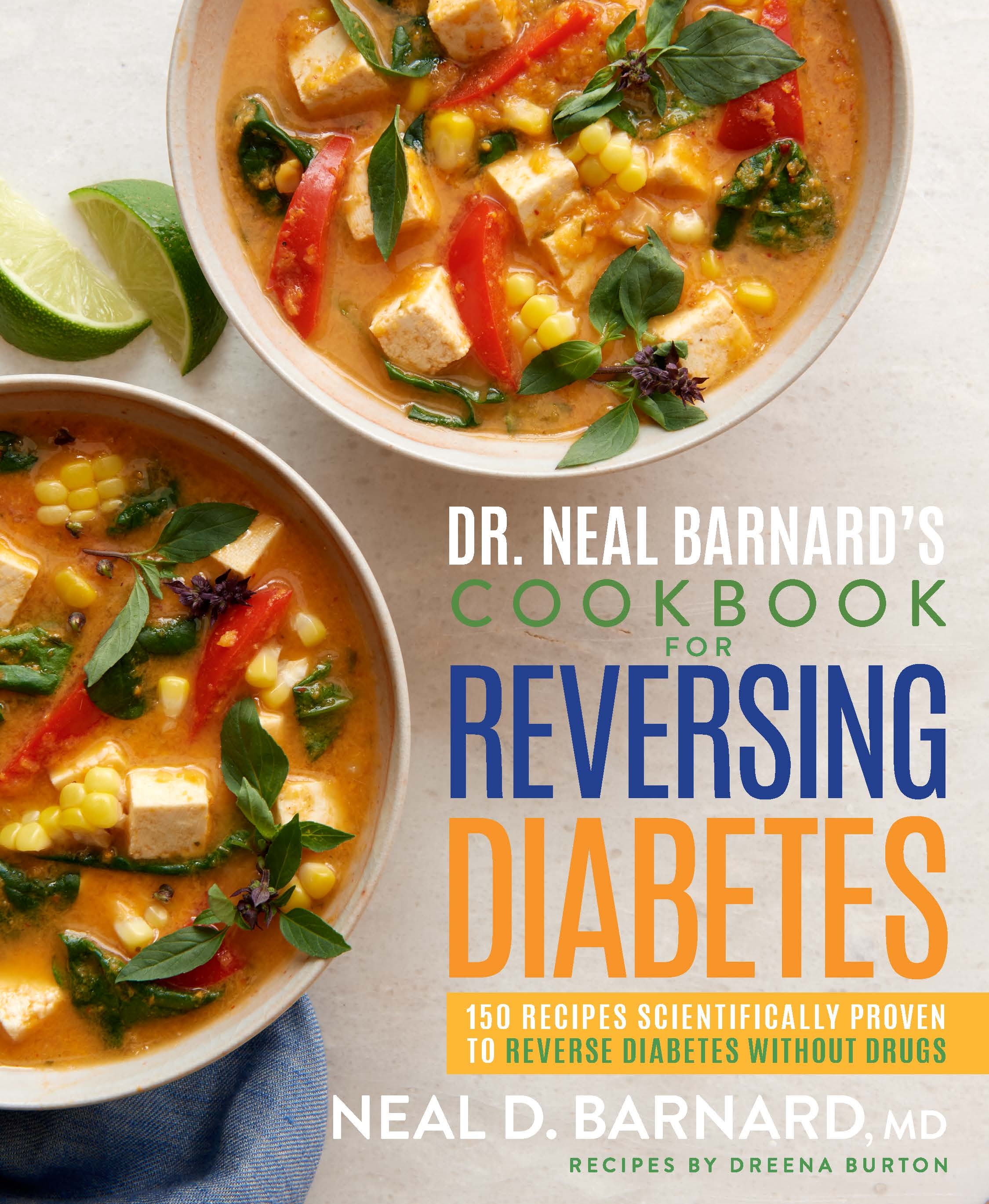'Dr. Neal Barnard's Cookbook for Reversing Diabetes' Highlights Diabetes-Fighting Diet
New Cookbook Offers 150 Recipes and Tips for Fighting Type 2 Diabetes with a Plant-Based Diet

Finally an approach to managing type 2 diabetes that is not based on pills or injections, but on food—the most delicious “prescription” you could imagine. Dr. Neal Barnard’s Cookbook for Reversing Diabetes, written by Neal Barnard, M.D., nutrition researcher and New York Times bestselling author, draws on decades of scientific research showing the power of plant-based diets for reversing type 2 diabetes. Dreena Burton, bestselling cookbook author and creator of the Plant Powered Kitchen blog, developed the cookbook’s 150 recipes.
The cookbook features all of your favorite foods, including burgers, pasta, muffins, and pudding, but approached from a healthful angle—focusing on vegetables, fruits, whole grains, and legumes. Dr. Barnard explains the scientific relationship between plant-based nutrition and type 2 diabetes by highlighting the nutritional properties of ingredients in a simple and easy-to-understand way.
The cookbook, a perfect companion to Dr. Barnard’s newly updated Dr. Neal Barnard’s Program for Reversing Diabetes, explains that plant-based diets have been shown to powerfully support health by:
- Tackling High Blood Sugar: A plant-based diet addresses the root cause of type 2 diabetes by reducing fat buildup inside cells, which helps tackle insulin resistance and brings blood sugar down.
- Helping Weight Loss: Plant-based foods are rich in complex carbohydrates and contain very little fat. In addition, research shows that when people begin a plant-based diet, their after-meal metabolisms increase, allowing calories to burn more quickly and for longer periods of time.
- Trimming Cholesterol: Plant-based foods contain no cholesterol and very little saturated fat. Many are rich in soluble fiber, which helps the body eliminate cholesterol.
- Helping Lower Blood Pressure: Plants are rich in potassium, low in saturated fat, and can help lead to weight loss—all of which can help reduce blood pressure.
“A plant-based diet is a powerful tool for preventing, managing, and even reversing type 2 diabetes,” says Dr. Barnard. “Not only is this the most delicious ‘prescription’ you can imagine, but it’s also easy to follow. Unlike other diets, there’s no calorie counting, no skimpy portions, and no carb counting. Plus, all the ‘side effects’ are good ones.”
Some of the recipes featured in the book include:
- Lemon-Pineapple Muffins
- Cauliflower Scramble
- Thai Corn and Sweet Potato Stew
- Power Lunch Bowl
- Sesame Broccoli
- Easy as Pie Baked Apples with Salted Caramel Sauce
ABOUT THE AUTHORS:
Neal Barnard, M.C., F.A.C.C., is the founder and president of the Physicians Committee for Responsible Medicine and the Barnard Medical Center. He has authored more than 70 scientific publications and 19 books, including the bestsellers Power Foods for the Brain, 21-Day Weight Loss Kickstart, and Dr. Neal Barnard’s Program for Reversing Diabetes. Dr. Barnard is a frequent lecturer appearing throughout the world and an adjunct professor of medicine at the George Washington University School of Medicine.
Dreena Burton has written five bestselling cookbooks and is a pioneer in the field of plant-based recipe development. Passionate about health, she creates recipes using whole foods and minimally processed ingredients. Plant-Powered Families is her latest title, comprised of whole-foods recipes and Dreena’s insights and tips as a mother of three. Dreena graduated with distinction from University of New Brunswick. After working in marketing management for several years, Dreena followed her true passion of writing recipes and cookbooks.
Founded in 1985, the Physicians Committee for Responsible Medicine is a nonprofit organization that promotes preventive medicine, conducts clinical research, and encourages higher standards for ethics and effectiveness in education and research.






